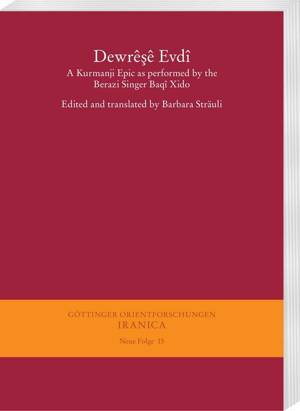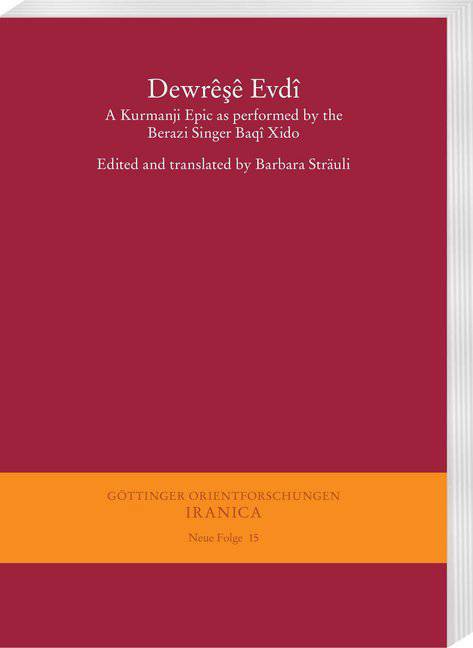
- Afhalen na 1 uur in een winkel met voorraad
- Gratis thuislevering in België vanaf € 30
- Ruim aanbod met 7 miljoen producten
- Afhalen na 1 uur in een winkel met voorraad
- Gratis thuislevering in België vanaf € 30
- Ruim aanbod met 7 miljoen producten
Zoeken
Dewrese Evdi
A Kurmanji Epic as Performed by the Berazi Singer Baqi Xido
€ 127,45
+ 254 punten
Omschrijving
The 200-year-old war epic Dewrese Evdi (Dewresh, son of Evdi) is a highlight of the singing tradition of the Berazi Kurds, a tale of intertribal conflict and tragic love. This bilingual edition is based on a 1987 performance by the famous singer Baqi Xido from Kobani. It is one of the first studies of this kind on Western Kurmanji oral literature. The introduction, glossary and notes reflect numerous interviews with older Berazi Kurds with a nomadic past. This research approach enabled a very close semantic reading of the epic. Introduction and notes include details on migrating habits, place names, artifacts, clothing and Bedouin custom law as well as memories of Berazi singers and their performances. These interviews were checked against travelers' accounts, scholarly research and photographs from the Western Jazira. Inquiries were also made into singers' tools of oral-formulaic composition and the oral genres of the region. As opposed to many Yezidi variants, the story of the Yezidi hero Dewres is here sung by a Muslim singer. Besides, Baqi Xido's narrative mirrors factual relations among Kurds and Arabs up to World War II. As a result, there emerges the picture of a strong Kurmanji oral tradition in an ethnically mixed border region and shaped by the nomadic habits of the steppe.
Specificaties
Betrokkenen
- Vertaler(s):
- Uitgeverij:
Inhoud
- Aantal bladzijden:
- 243
- Taal:
- Engels
- Reeks:
- Reeksnummer:
- nr. 15
Eigenschappen
- Productcode (EAN):
- 9783447107068
- Verschijningsdatum:
- 1/06/2017
- Uitvoering:
- Paperback
- Formaat:
- Trade paperback (VS)
- Afmetingen:
- 170 mm x 239 mm
- Gewicht:
- 498 g

Alleen bij Standaard Boekhandel
+ 254 punten op je klantenkaart van Standaard Boekhandel
Beoordelingen
We publiceren alleen reviews die voldoen aan de voorwaarden voor reviews. Bekijk onze voorwaarden voor reviews.






